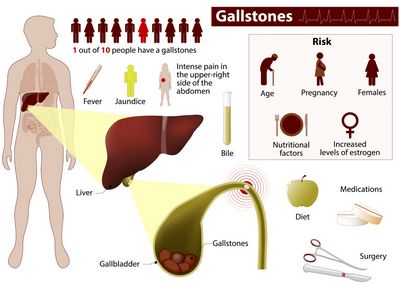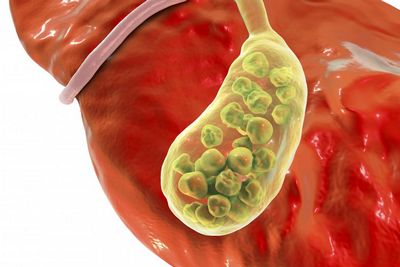Many people do not realize it but there is a definite difference in how your gallbladder works in terms of what type of gallbladder location you have.

The gallbladder is actually located in the lower part of the small intestine. The gallbladder is made up of bile, which is responsible for turning cholesterol into bilirubin and a digestive track that transport the bilirubin from the liver to the gallbladder.
Gallbladder location can either be internal (in the small intestine) or external (in the upper part of the abdomen). If the gallbladder does not release bile at the right times or at the correct amount, it can become blocked and will cause pain in the abdomen, chest and even the esophagus. The most common causes of gallbladder problems are excessive drinking, diabetes, alcohol abuse and high levels of cholesterol.
Gallbladder blockages also occur due to the improper functioning of other organs. A liver that is underactive may result in gallstones forming in the gallbladder. This happens because the gallbladder is no longer able to produce sufficient bile. When the bile is not produced at the proper rate, cholesterol may build up and form gallstones.
There are also kidney problems that can lead to gallbladder problems. Gallstones can be formed as a result of a kidney infection or because the kidneys fail to function properly.

When these complications occur the gallbladder has difficulty moving the bile.
Gallbladder problems can also occur due to an obstruction of the bile duct. This is caused by a condition called cholecystitis where a person has developed inflammation of the bile duct and gallbladder.
Gallbladder related symptoms may include nausea, vomiting, pain in the abdomen and abdominal pains. Other symptoms include fever, dizziness, chills, shortness of breath, fainting, heart palpitations, sweating and a change in appetite. Other conditions that can occur with gallstones are inflammation of the liver and an increased risk of developing gallstones themselves.
Gallbladder related complications are generally not serious. However, if they do occur it is wise to see a doctor as soon as possible to avoid any further complications. Gallstones can be very dangerous to your health. They can cause inflammation and ulceration of the bile duct, liver and gallbladder and result in blockage of the bile flow and increase risk of infection.
Gallbladder surgery can help with gallbladder problems but is not something that should be done lightly. Most doctors recommend that you wait for severe symptoms to disappear before having any type of surgery performed. Once you are aware of any complications, it is best that you seek out a good and qualified surgeon who has performed many gallbladder surgeries in the past.
If you choose to have gallbladder surgery, it is important that you go about it the right way.

Before making an appointment with a surgeon to make sure that you ask questions and try to find out more about the process. It is also a good idea to know the risks associated with having gallbladder surgery done and ask for any previous patients. The more informed you are the better decisions you will make regarding whether to have the surgery done.
After a surgeon has performed gallbladder surgery, it is important to give the body time to heal and return to normal. You should not try to force the gallbladder to heal on its own.
Gallbladder surgery is not a quick fix solution to all your gallbladder related issues. However it is a common treatment option. You should follow the instructions given to you and the surgeon carefully after the surgery and make sure that you follow the instructions. The recovery period will vary from patient to patient and the surgeon you have will likely give you some special instructions.
Gallbladder removal surgery does not guarantee that gallstones will not return. Even if you have removed the gallbladder or other gallstones there is a possibility that it can return. You should always be careful and be aware of the fact that gallstones and gallbladder-related complications can occur without you knowing about it.